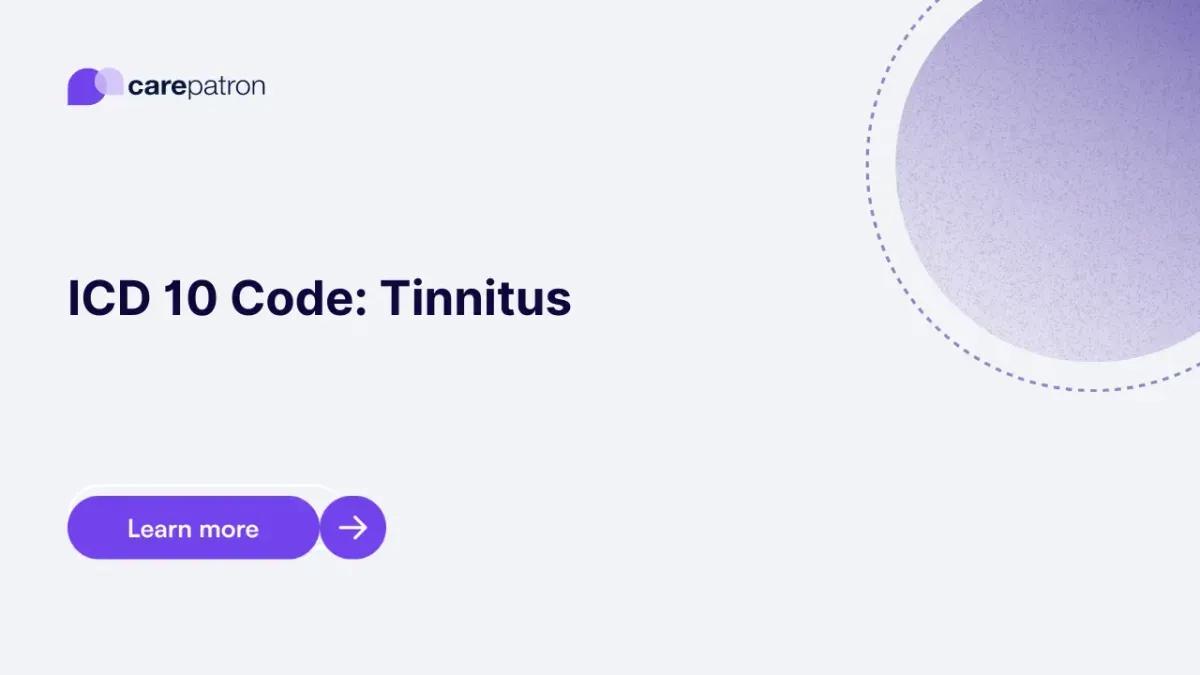
Tinnitus ICD-10-CM Codes | 2025
Explore 2025 ICD-10 codes for tinnitus and pulsatile tinnitus by ear side. Learn about diagnosis, billing, symptoms, causes, and treatment options.
Use Code
Commonly asked questions
Tinnitus is a common auditory condition, affecting approximately 15% to 20% of the global population. It is especially prevalent among older adults and individuals with prolonged exposure to loud noises.
Tinnitus can be either temporary or permanent, depending on its underlying cause. In cases related to noise-induced hearing loss or chronic ear conditions, it may become a long-term or lifelong issue.
Patients can help prevent tinnitus by avoiding prolonged exposure to loud noises and using protective equipment like earplugs in high-volume environments. Maintaining ear hygiene and addressing underlying health conditions early also reduces the risk of developing tinnitus.
EHR and practice management software
Get started for free
*No credit card required
Free
$0/usd
Unlimited clients
Telehealth
1GB of storage
Client portal text
Automated billing and online payments
